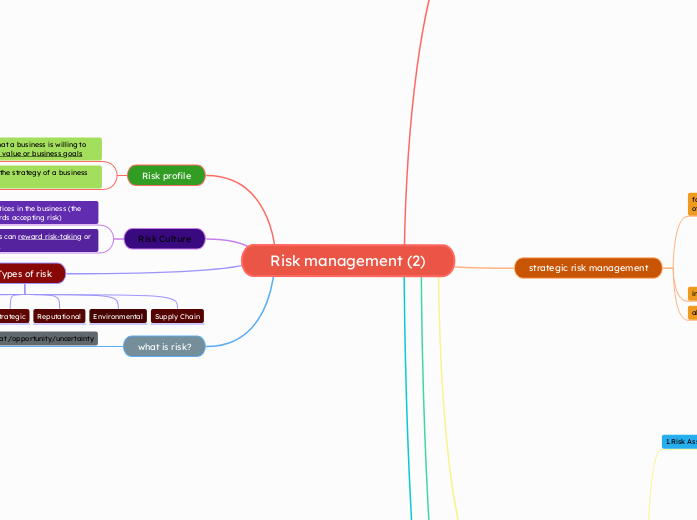von Mathabo Mat Vor 1 Monat
118
Risk management (2)
Strategic risk management is an integral part of a business's strategic planning process, aligning decisions with the organization's mission and vision. It addresses long-term risks affecting business goals, including competition, market, and regulatory changes.









